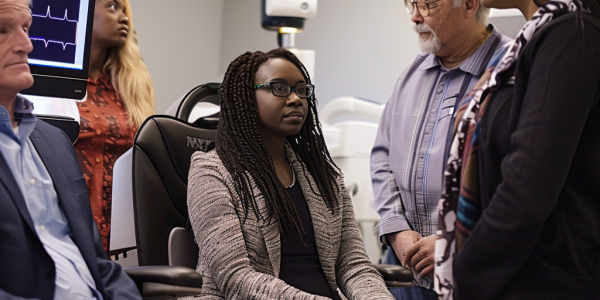Gardening Linked to Better Cognitive Health in Old Age
A groundbreaking study from Edinburgh University reveals that gardening can help maintain cognitive health in old age. Engaging in gardening activities has been linked to better cognitive abilities later in life, offering protection against conditions like dementia. Alzheimer Scotland welcomes the results, emphasizing the benefits of gardening for brain health.
Study Links Mental Well-Being to Healthy Aging Phenotypes
Discover the latest research on the link between mental well-being and healthy aging. A study in Nature Human Behaviour reveals the positive effects of better mental well-being on aging, independent of socioeconomic factors. Learn how prioritizing mental well-being can support overall health and longevity.
Key Lifestyle Factors for Reaching 100 Identified by Scientists
Discover the top three lifestyle factors that could help you live up to 100 years old. Not smoking, regular exercise, and a diverse diet are key elements for longevity, according to a study by health experts in China. Learn how urban living, higher BMI in later life, and positive lifestyle changes can impact your lifespan. Find out more about the world’s oldest living individuals and the importance of maintaining a healthy lifestyle, no matter your age.
Benefits of Yoga for Seniors: Improving Quality of Life
Discover the numerous benefits of yoga for seniors, from improved flexibility and balance to enhanced cognitive function and stress reduction. Learn how regular yoga practice can help manage chronic pain, reduce stress levels, and promote better sleep quality for older adults.
MYndspan Study Reveals Groundbreaking Insights on Brain Aging Trajectories
MYndspan, a British brain health tech company, presented a groundbreaking study at the Longevity Summit Dublin utilizing magnetoencephalography (MEG) to predict brain aging trajectories. The research identified specific neurophysiological markers associated with accelerated brain aging and highlighted the significance of cortical oscillations as reliable markers for predictive brain age modeling. MYndspan plans to expand its brain health assessments to other locations in the UK and North America, making advanced brain health assessments more accessible to a wider audience.
Perceived Age of Dementia Caregivers and its Impact on Well-Being
Recent research from the University of Surrey reveals the impact of perceived age on dementia caregivers and individuals with dementia. Understanding how felt age influences well-being is crucial for improving caregiving relationships and overall quality of life.
Biotech Innovations for Healthspans and Investment Opportunities
Discover the latest biotech innovations focusing on longevity and how they can impact healthcare. Learn key considerations for biotech investors and the disruptive forces shaping the industry. Explore the role of Artificial Intelligence in revolutionizing drug discovery and personalized medicine.
Advancements in HIV and Aging Research
Discover the latest advancements in HIV and aging research, and how individuals with HIV are now leading longer, healthier lives. Learn about the National Institute on Aging’s funding opportunities for researchers interested in healthy aging for older adults with HIV, including initiatives focused on women’s health and accelerated aging. Find out how these research projects aim to improve strategies for preventing, treating, and managing HIV infection and its associated conditions.
Study Shows Heart-Healthy Habits Can Reduce Risk of Cardiovascular Disease
A recent study by the American Heart Association found that adopting healthy lifestyle habits can reduce the risk of cardiovascular disease by 36%. Maintaining a healthy diet, adequate sleep, regular exercise, and managing blood pressure, blood sugar, cholesterol, and weight effectively were key factors. Individuals with a family history of CVD saw a 39% reduction in risk. Lead researcher Jiantao Ma emphasized the importance of these habits in reducing heart-related issues and overall mortality. The study, published in the Journal of the American Heart Association, analyzed DNA samples from over 5,600 participants, highlighting the impact of simple yet effective habits on overall health and longevity.
Debates on Longevity and Aging
Explore the latest research on longevity and aging, including controversial claims by experts like David Sinclair and innovative approaches by biochemist-gerontologist Dr. Valter Longo. Discover how dietary interventions and cutting-edge science are shaping the quest for a long and healthy life.










